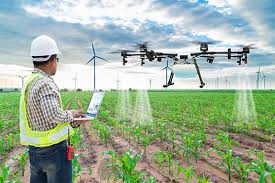Ph.D. in Agronomy & Biological/Agricultural Engineering: Introduction, Admission, Registration, Eligibility, Duration, Fees, Syllabus 2024

Introduction:
Embark on a journey of innovation and discovery with a Ph.D. in Biological and Agricultural Engineering. This advanced degree program integrates cutting-edge research with practical applications to address the complex challenges facing modern agriculture. Students delve into interdisciplinary studies, blending biological sciences with engineering principles to develop sustainable solutions for food production, environmental conservation, and bioenergy.
Throughout the program, students work closely with leading researchers and industry professionals, gaining invaluable hands-on experience and access to state-of-the-art facilities. From precision farming techniques to bioprocess engineering, the Ph.D. curriculum equips graduates with the expertise to drive innovation and make meaningful contributions to the global agricultural landscape.
Admission Process:
- Submit an online application form with relevant academic transcripts and letters of recommendation.
- Fulfill specific departmental requirements, which may include standardized test scores (GRE), a statement of purpose, and a research proposal.
- Participate in interviews or presentations to assess research interests and fit within the program.
- Secure funding through scholarships, assistantships, or grants, if applicable.
Eligibility:
- A master's degree in engineering, biological sciences, or related fields.
- Demonstrated research experience and academic proficiency.
- Strong letters of recommendation highlighting research potential.
- Proficiency in relevant technical skills and methodologies.
Completion Time:
Completing a Ph.D. in Biological and Agricultural Engineering typically takes between 4 to 6 years, depending on various factors such as the student's research progress, publication record, and dissertation requirements. The timeline is structured to allow students to engage deeply in their research while also fulfilling coursework, comprehensive exams, and other programmatic requirements.
During the initial years of the program, students focus on coursework and building a solid foundation in their chosen field of study. As they progress, they transition to more independent research, working closely with faculty advisors to develop and execute their dissertation projects. This phase often involves conducting experiments, collecting data, analyzing results, and writing research papers for publication in academic journals.
The duration of the Ph.D. program can also be influenced by the complexity of the research topic, availability of resources, and opportunities for collaboration or internships. Some students may choose to extend their studies to pursue additional training or to explore interdisciplinary interests.
Ultimately, the goal of the Ph.D. program is to prepare students to become independent researchers and experts in their field, equipped with the skills and knowledge to address critical issues in biological and agricultural engineering.
Career Opportunities:
- Research Scientist
- Agricultural Engineer
- Bioprocess Engineer
- Environmental Consultant
- Government Policy Analyst
- Academia/University Professor
Syllabus:
- Advanced Topics in Biological Systems Engineering
- Sustainable Agriculture and Environmental Management
- Bioprocess Engineering and Biotechnology
- Precision Agriculture and Remote Sensing
- Bioenergy and Renewable Resources
- Advanced Statistical Methods for Agricultural Research
Internship Opportunities:
- Collaborative research projects with industry partners and government agencies.
- Internships at agricultural technology companies or research institutions.
- Fieldwork and data collection in agricultural settings.
- Participation in international conferences and workshops.
Scholarship and Grants:
- Departmental assistantships providing tuition waivers and stipends.
- Research grants from government agencies, private foundations, and industry sponsors.
- Fellowships for outstanding academic achievement and research potential.
- Travel grants to present research findings at conferences and symposiums.
FAQs:
Can I apply with a bachelor's degree?
Most programs require a master's degree for admission, but exceptional candidates with extensive research experience may be considered.
Are there opportunities for interdisciplinary research?
Yes, many programs encourage collaboration across departments and disciplines to address complex agricultural challenges.
What funding options are available for Ph.D. students?
Funding opportunities include departmental assistantships, research grants, fellowships, and scholarships. Prospective students should inquire about specific opportunities during the application process.
